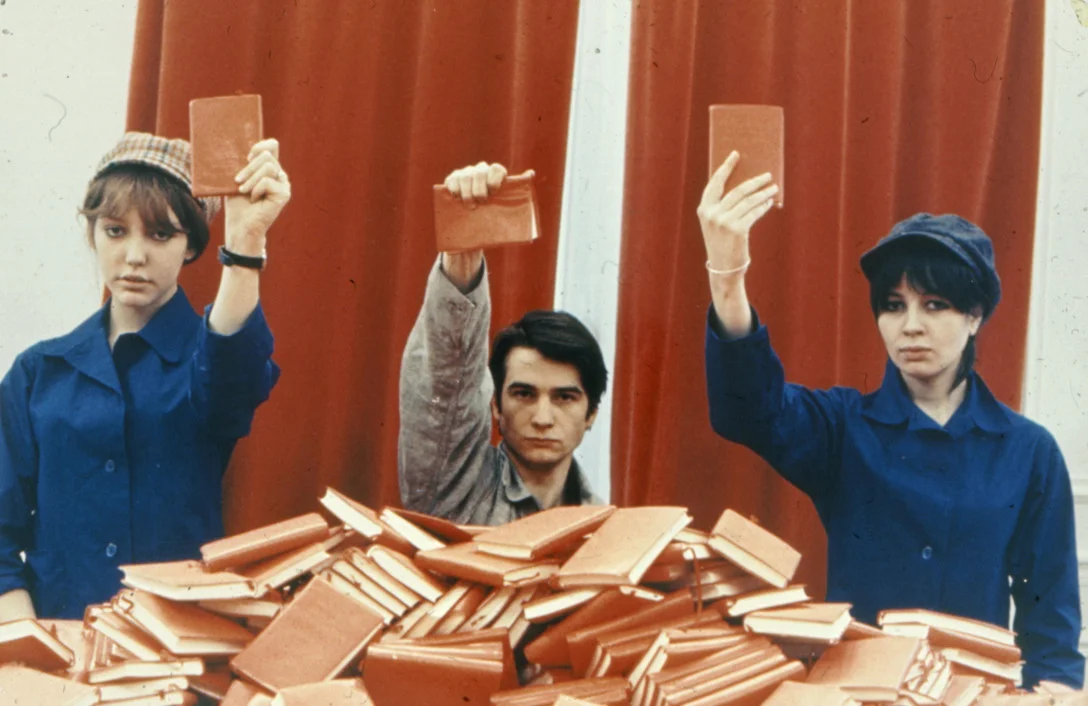
A shot from the film "La Chinoise". 1967 / Legion-Media
Qalam strives to explore the interpenetration of different cultures. To this end, we have decided to launch a series of playlists in which music mediates between different geographical and ideological spaces. Our first playlist is called ‘West to East: One Hundred Best Songs’. It will be updated several times a week, and its curation will focus on how Western pop culture has reflected the realities of the East, whether they are musical, geographical, religious, or political. (The terms ‘West’ and ‘East’ should be taken as broadly and arbitrarily as possible.)
Jean-Luc Godard's 1967 film La Chinoise, as well as many of his other films, fits very well into Sergei Eisenstein's adage 'montage of attractions'. The central attraction of the beautiful La Chinoise is undoubtedly a wonderful satirical prop play about Mao, Johnson, napalm, and a paper tiger. During the first Russian-language retrospectives of Godard’s films, students would watch this music video (or as they used to say, scope-à-tone) in the film several times, trying to learn the words. At the time, in the early 1990s, the mystery also lay in the fact that no one understood who was singing it (there were suspicions that it was Jean-Pierre Léaud, one of the main actors), and there was no one to find out from—even proficient Soviet French speakers admitted they did not know.
A clue appeared only in the mid-1990s with the development of file-sharing services and YouTube. The 1960s singer's name was Claude Channes, and he was a member of the beat groups Les Fantômes and Les Champions. Instances of Maoism in musical pop culture in general are not uncommon. Numerous artists, ranging from Nino Ferrer to the veteran leftist Robert Wyatt and his song ‘Chairman Mao’, have referenced the Great Helmsman in their musical works. However, the whole essence of the counter-bourgeois West's absurd enthusiasm for the Cultural Revolution and other Chinese excesses of the time is forever captured in this song. A few years ago, ‘Mao Mao’ was even covered by Jarvis Cocker, but his rendition somehow did not have much feeling.